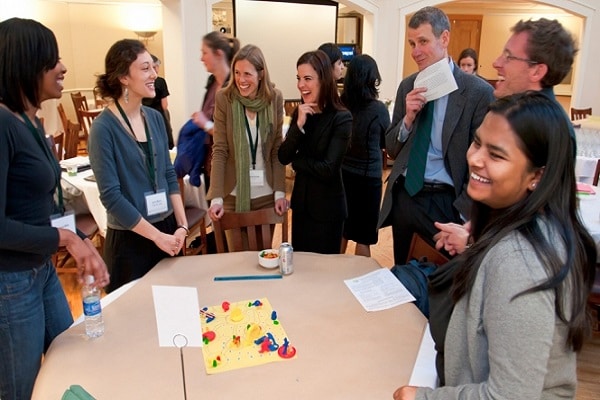In experiential education, field experiences are usually included within professional programs as a way of building the learner’s skills. And facilitate the transition from theoretical knowledge to practice. There are several forms of experiential learning available, and the most common of these are internship and cooperative education. The steps that comprise experiential learning are as follows.
Internship courses offer a learner the opportunity to work in an organization where he is exposed to real-world problems. From this real environmental experience, the learner finds meaning in their thoughts as well as concepts already learned in class.
Cooperative education, on the other hand, involves a structured method of combining both class-based learning and practical experience. During each step of the experience, the learner engages with the content, instructor, colleagues, and self-reflection. From this experience, they apply what they have learned in other situations.
1. Creating The Right Environment
Portable air conditioners can be used especially for poorly insulated rooms. There is a wide range of portable air conditioners to choose from depending on your personal needs and requirement – check out CoolandPortable.com for some reviews/best picks. Since they are mobile you get the freedom to create a comfortable space virtually anywhere and creating the right environment for experiential learning.
2. Experience/Doing
In this step, the learner engages in a hands-on experience without the assistance of an instructor. This may inform of role-playing, problem-solving or create a product. The primary objective of this step is to let the learner learn from the experience.
 3. Reflecting
3. Reflecting
At this point, the learners share the outcome of their experiences with their peers. They will also get to know the experiences and results of their peers. From this, the students share their reactions, observations, and feelings about the outcome. This process is equivalent to reflecting on what they discovered and may relate it to an experience.
4. Processing/ Analyzing
The learners discuss, analyze and reflect on the outcomes of their various experiences. This will allow them to relate what they have learned to future learning experiences. At this stage that the learners discuss how the experience was carried out, tools used. And the problems that emerged during the experience.
The learners get to discuss how particular problems that arose the experience was solved and to identify recurring problems.

5. Generalizing
Based on the analysis of the experience, the learners connect the learned experiences with real-world situations. And find relating trends and common truths. From this, they can draw emerging principles that are applicable in a real-life environment.
6. Application
The learners now apply the knowledge acquired from the experience and previous experiences to solve similar or related problems. The learners can discuss how the issues raised in future situations. And how more important behaviors can develop from the experience.
This process enables the student to cultivate within themselves. The ability to relate complex situations and find a way to work within them.
Experiential Learning Is Better
In conclusion, Experiential education is a philosophy of education describing the process that occurs between educators and learners. It combines active learning with concrete experiences, reflection, and abstract concepts to engage all Experimental learning methods.
In experiential education, the student becomes more involved in the learning process than a traditional classroom environment. This philosophy is based on experiential learning where students are introduced to real-world problems. Already acquired theoretical knowledge from a classroom environment is integrated with practical learning.
Experiential learning is accomplished through some steps that offer a learner hands-on and reflective experience. That helps them to acquire new skills and knowledge as they actively get involved in the learning process.

